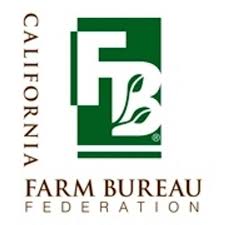 reopen a comment period on the proposed changes to allow more opportunity for affected people to respond.
reopen a comment period on the proposed changes to allow more opportunity for affected people to respond.Comments closed June 6 for a draft environmental report on the NFIP, which the California Farm Bureau Federation said would have implications for agriculture and other land uses in floodplain areas.
The NFIP is a voluntary program through which property owners can purchase federal flood insurance. In exchange, affected communities must enact local floodplain management regulations.
In April, FEMA proposed changes to the flood-insurance program as part of a nationwide programmatic environmental impact statement about the program. The draft environmental document includes an evaluation of the program's potential impacts on the natural and human environment, as well as an evaluation of alternative proposals to modify the program.
According to the NFIP, proposed modifications are needed to implement the legislative requirements of flood insurance legislation adopted in 2012 and 2014, and to demonstrate compliance with the federal Endangered Species Act.
"FEMA is inappropriately using the National Flood Insurance Program to impose conditions that would essentially control local land use within the floodplain for the benefit of endangered salmon, steelhead and other marine species," CFBF Associate Counsel Jack Rice said.
In its comments, CFBF said that if the comment period is not reopened, the environmental document should be withdrawn with no action taken—one of four alternatives being considered by FEMA.
Other alternatives, including the agency's preferred alternative, suggest avenues for complying with the ESA. That alternative states: "A community must obtain and maintain documentation of compliance with the appropriate federal or state laws, including the ESA, as a condition of issuing floodplain development permits."
Another alternative includes an ESA component that would require communities to obtain and maintain documentation that any adverse impacts to ESA-listed species and designated critical habitat caused by proposed "development" will be mitigated to the maximum extent possible.
"Basically, if you put anything in the floodplain you have to fully mitigate for that thing, and where it becomes a problem for agriculture is because 'development' is defined so broadly it includes almost anything," CFBF environmental policy analyst Justin Fredrickson said. "Everything from grading or disking or leveling fields becomes development. It ultimately puts restrictions on what you can do—and you can't do anything without mitigating."
He said Farm Bureau believes the most appropriate action is to withdraw the environmental document, to allow for appropriate policy review by the Trump administration, and to await completion of an NFIP reauthorization process underway in Congress.
"These approaches have alarming potential to improperly impose significant, new burdens on local jurisdictions, private property owners and many floodplain activities," the CFBF comments said. "Agriculture is a low-risk, low-impact, sustainable use of our nation's floodplains that differs fundamentally from other forms of 'floodplain development,' and the low effects of agriculture should be recognized."
More information about the proposed changes to the National Flood Insurance Program may be found at www.regulations.gov/document?D=FEMA-2012-0012-0047.
(Christine Souza is an assistant editor of Ag Alert. She may be contacted at csouza@cfbf.com.)
Reprinted with permission: California Farm Bureau Federation









